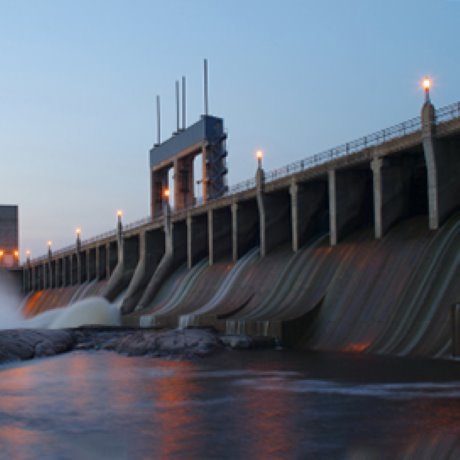It’s been 14 years since the Walkerton water tragedy left seven people dead and made more than 2,300 others ill, yet a recent report states many municipalities and the province are not taking a hard enough look at improving drinking water systems.
In a section of his 2013/2014 annual report, which was released in October, Environmental Commissioner of Ontario (ECO) Gord Miller states that despite the Walkerton Commission identifying that full-cost recovery is "crucial," for municipalities, the recommendations have not been fully implemented and the province isn’t enforcing it.
"The province’s hollow promises for mandating full-cost recovery have been diluted over successive pieces of legislation," the report reads.
"The government is long overdue in pushing all municipalities to achieve full-cost recovery for their drinking water systems."
"It’s 14 years later and there’s some significant things that haven’t been done," adds Andy Manahan, executive director of the Residential and Civil Construction Alliance of Ontario (RCCAO).
"It’s been on the books for so long."
Walkerton has been termed by many as Canada’s worst E. coli contamination. The tragedy occurred in 2000 when the water supply became polluted from farm runoff. The E.coli intestinal bacteria that flowed through the water caused severe illness and death. The outbreak could have been prevented had the proper doses of chlorine been used and the levels checked daily.
Walkerton Public Utilities Commission operators were blamed partially for the outbreak, as they lacked the training and expertise to assess the well that was heavily contaminated, made false entries about operating records and engaged in several improper operating practices.
Following Walkerton, the provincial government appointed Justice Dennis O’Connor to lead an inquiry into how the tragedy happened and what could be done to ensure it never happens again.
While there were many recommendations, the commission made two that focused on making sure water providers can properly finance the total costs of their systems.
The commission recommended owners of municipal drinking water systems, usually the municipalities themselves, submit a financial plan to the province, laying out the full costs of the water systems, and how those costs will be recovered. The commission noted that "the plan would depend on two components: full-cost accounting and full-cost recovery."
Municipalities were advised to raise enough money for their water systems through water rates, user charges, development charges, property taxes, reserves and loans.
Justice O’Connor also encouraged municipalities to adopt full-cost pricing, requiring users to pay full costs for water use, as that would also encourage water conservation.
Manahan says this is a challenge that needs to be addressed by both the province and municipalities.
"There’s not a lot of municipalities that have really gone to a full-cost accounting or full-cost pricing basis. There are some municipalities, or a swath of municipalities that are low growth, or rural or northern Ontario, that don’t have the tax base or the potential to implement full-cost pricing," he says. "If the province really thinks water conservation is an important issue and we have to fix leaky pipes and so forth, full-cost pricing is a great way to drive it. I think there’s been a meekness within the province, particularly within the MOE (Ministry of the Environment), in terms of moving toward full-cost pricing."
Manahan states the RCCAO has suggested some ways this could be addressed.
"The regulations for full-cost pricing could be implemented in a phased way so that urban municipalities, or slightly higher growth municipalities, that would have a better chance of achieving full-cost pricing, let’s focus on that group first. Smart meters are starting to be implemented in the electricity sector in terms of time-of-day use and water is way cheaper than electricity," he says, adding there would be options for lower growth areas as well.
"Maybe there’s situations where they could amalgamate with other municipalities."
In the report, the MOE states the province "has brought in strong legislation and innovative programs to protect Ontario’s drinking water and to support municipalities in assessing the financial sustainability of their drinking-water systems."
It states it is up to each municipality to determine the best way to achieve "financial sustainability" for their water systems.
However, the ECO states more needs to be done.
"The government is clearly aware of the necessity of full-cost recovery for drinking water systems," the report states.
"The longer the province takes in requiring municipalities to assess and recover the full costs of their drinking water systems, the more likely existing infrastructure deficits will grow – potentially threatening the safety of Ontario’s drinking water."
Follow Lindsey Cole on Twitter @DCN_Lindsey.











Recent Comments
comments for this post are closed